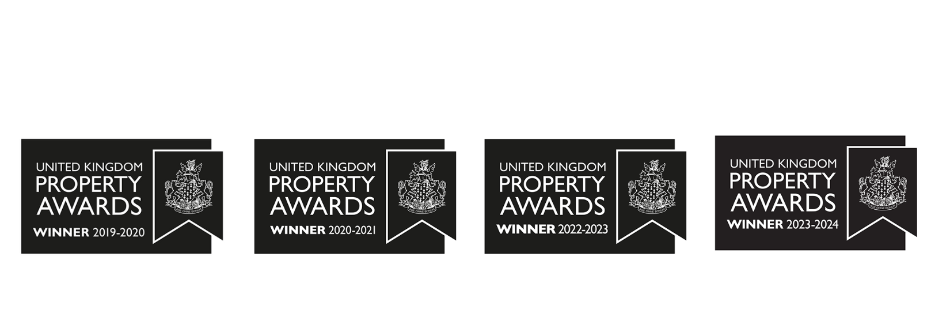Out of all of the deals, I would say that at least 55% are first-time investors. Now to be honest it is probably something we overlook.
When you know the industry you work in like the back of your hand, as an advisor, you can sometimes assume that everyone else does too. However, we know from our stats that this is not the case.
So I am often telling the brokers that they need to explain everything as clear as possible and in Lehman terms. The idea is that our job is to educate and clients can come to their own conclusions on whether the market is for them.
So what we wanted to do today is host this webinar and talk about everything you need to know as a first-time investor regardless if you are based in the UK or Overseas. We are going to do this in steps.
What do you need to do/know before buying?
-
- Choosing your property
- The process of exchanging and completing
- The rental returns of the market
- What do you need to do/know before buying?
- For this, we are going to assume that you are starting with no prior knowledge.
So like any investment vehicle, the first thing to research before you go any further is the downsides. Now, if you can live with the downsides then you start to build up your knowledge from there.
So what are the downsides?
- You need a large deposit – With stocks and shares you can put in a few hundred pounds just to start you off, whereas, with property, you need thousands, more like £30,000 as a rough guide
- You will have to qualify for a buy to let mortgage – your income from your job will need to show you can cover the mortgage for the home you live in and your buy to let property
- Property is not a quick return – Typically property makes great returns over a medium to a longer period, therefore you need to ensure that you are in this for the long haul
- You won’t make a quick buck – Unlike the stock market where you can see your investment double or treble in a short period, you won’t see this in the property market.
- The market may not be liquid when you go to sell – What I mean by this is that it could take you months to sell your property meaning if you need a quick exit route the property market is not for you.
- Initial taxes such as Stamp Duty – how much you will have to pay and is this more for an overseas company
So you have to sit with these negatives for a period and make sure that you can handle all of them. If so, you can then move on to the positives.
The Positives
- The property market is very stable and is seen as a safe asset – Apart from two blips in the past 40 years the property market has had a consistent upward trajectory. During this time the stock market has had 4 major dips where it lost over 25% each time and many more mini dips. Of course, there is the famous Lehman Brothers which went to $0. With property, you won’t have an asset that can go to £0.
- You can leverage – If you have a £50,000 cash amount, with most investments you will make income/growth on this £50,000 only. However, with property, you can leverage (borrow) 3 times this and also make extra income and growth on a larger amount.
- People always need a place to live – We all need a place to live so theoretically there will always be great demand. The city center properties for us, is what is in the highest demand all year round despite fashions such as during COVID where families wanted more space.
- On average you will generate a higher constant return in the property market than any other investment
- You can let out both traditionally and for short-term lets such as Airbnb which can generate circa 10% NET income.
Now you have both sides of the coin we can move to the next stage which is what area to invest in.
Most clients start the same, they look local. Why, well simply because they know the area they live in and feel comfortable, however, the likelihood is that the area they live in does not make the best investment case. Importantly, we always say use a professional to do a professional’s job. Most of us would not plumb our own house or re-wire the electrics therefore why would you try and manage your own property. Use a management agent and for the cost of a cup of coffee a day you can have peace of mind your property is being taken care of.
Using a management agent allows you to look across the UK as the location of your property is irrelevant, it is all about what area gives you the best return.
Based on the current figures the best areas are Manchester, Liverpool, Leeds, Sheffield, etc. Basically all Northern cities due to the price point and the income you get. The % is much higher than you get in the South.
As a company, we will send you evidence of why we feel the North is better than the South and of course what specific cities to invest in.
Once you have established what city you can then move on to the next step which is choosing your development.
Traditional Lettings
Choosing your development
At this point, your broker and yourself will run through a number of ideas. Typically we say to jump on a Zoom call and get a better understanding of the following:-
- Areas within areas – what we mean by this is what pockets of Manchester and Liverpool are still ripe for investing.
- What does your budget allow for – We will carefully select projects based on your budget and desired returns/goals
- Is the development ready now, tenanted, or totally off plan
- Are there any risks associated with the development
- What are your likely returns going to be
- Can I let this out as a short term let
- Picking your unit
- Once you have been through all of the above and are comfortable you then move to the next step which is the reservation.
Buy Property
Reservation & Exchange
The reservation is straight forward this is a simple form that can all be done online and a fee. The fee can be anything between £1,000 – £5,000 depending on where the developer sets it. This fee comes off of your overall balance.
You then move forward to our aftersales team and your chosen solicitor.
Your solicitor will send you documentation to sign and return along with a copy of your passport/driving license and a proof of address. They will also ask for a bank statement on where the money is coming from as they have to complete full and thorough Anti Money Laundering checks.
Once instructed your solicitor will receive the contract from the seller’s solicitor and start to make what are called inquiries. This is where they query certain points of the contract and effectively negotiate a contract between themselves.
Once this has been done which can take several weeks your solicitor will then report out to you. This is a summary of the contract and will give you all of the pitfalls with the property.
You sign this contract, send it back and pay your balance.
If the property is off-plan you pay a % of the balance, typically 25%, if the development is completed you will pay the full balance in cash or a makeup of cash and mortgage.
At this point, you have exchanged or exchanged/completed.
Short Term Lets
Renting out the property
This is where we come in again, we will take pictures of your property, get an inventory done and get this listed on the market.
Once the tenant has shown interest and put an offer forward we bring that to you and if accepted then we start the vetting of the tenant. This ensures that the affordability is there and the tenant can keep up with the rental payments.
We then fully manage your property and ensure you get paid month on month.
- Things to consider
- If you are an overseas client you need an NRL1 form
- Income Tax
- It is never plain sailing
- We are with you every step of the way
Flambard Williams YouTube Channel
Subscribe to our YouTube channel for more property content and also be the first to know when our new videos are released.







